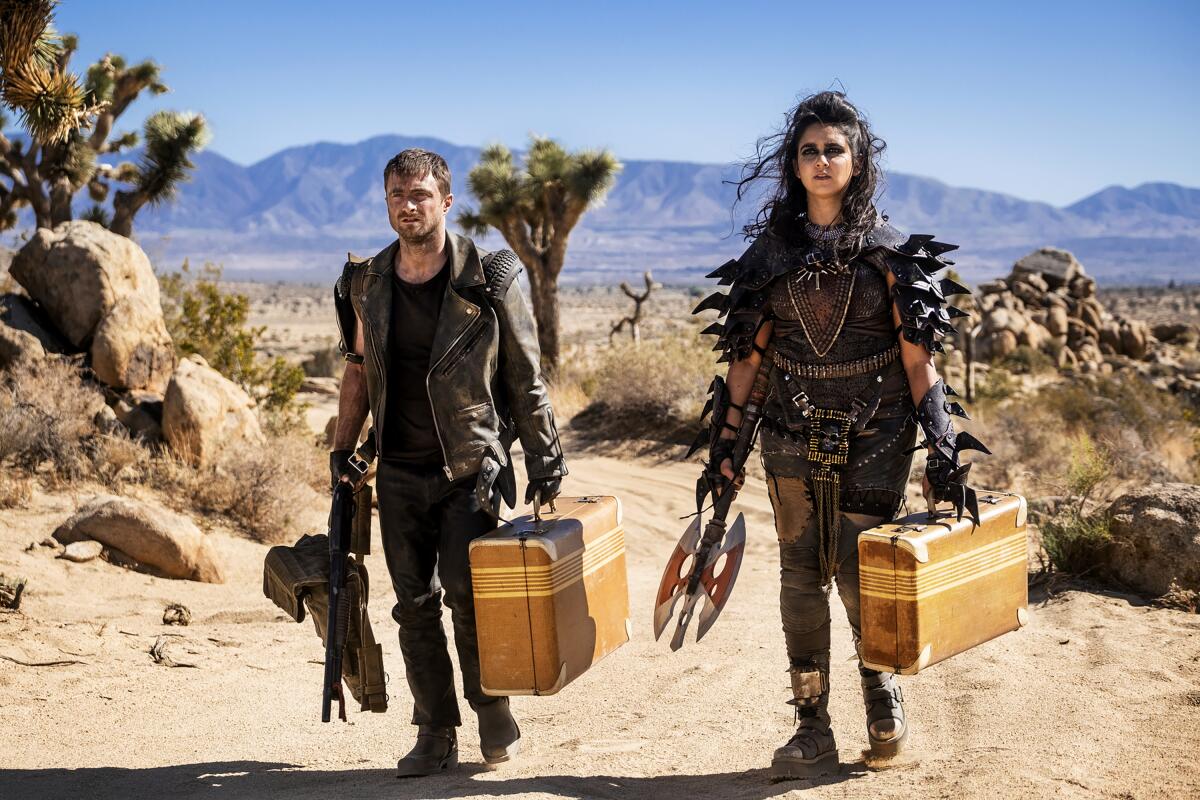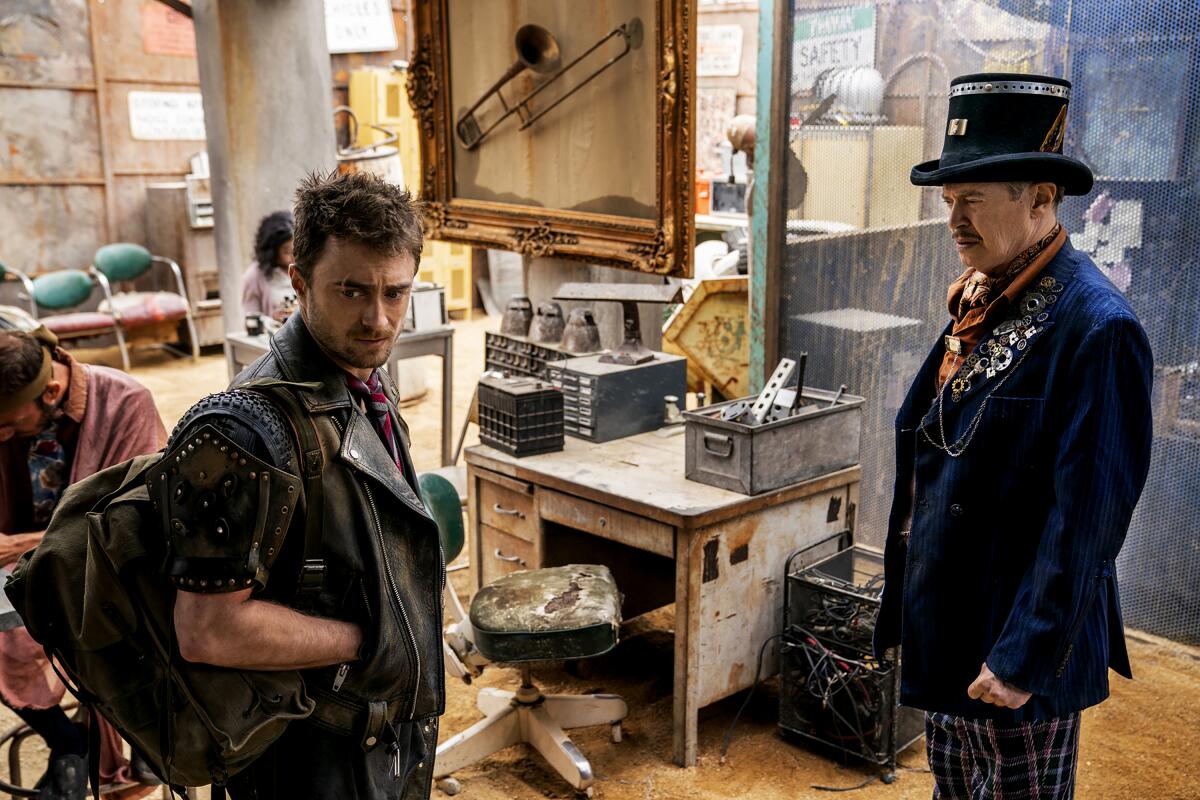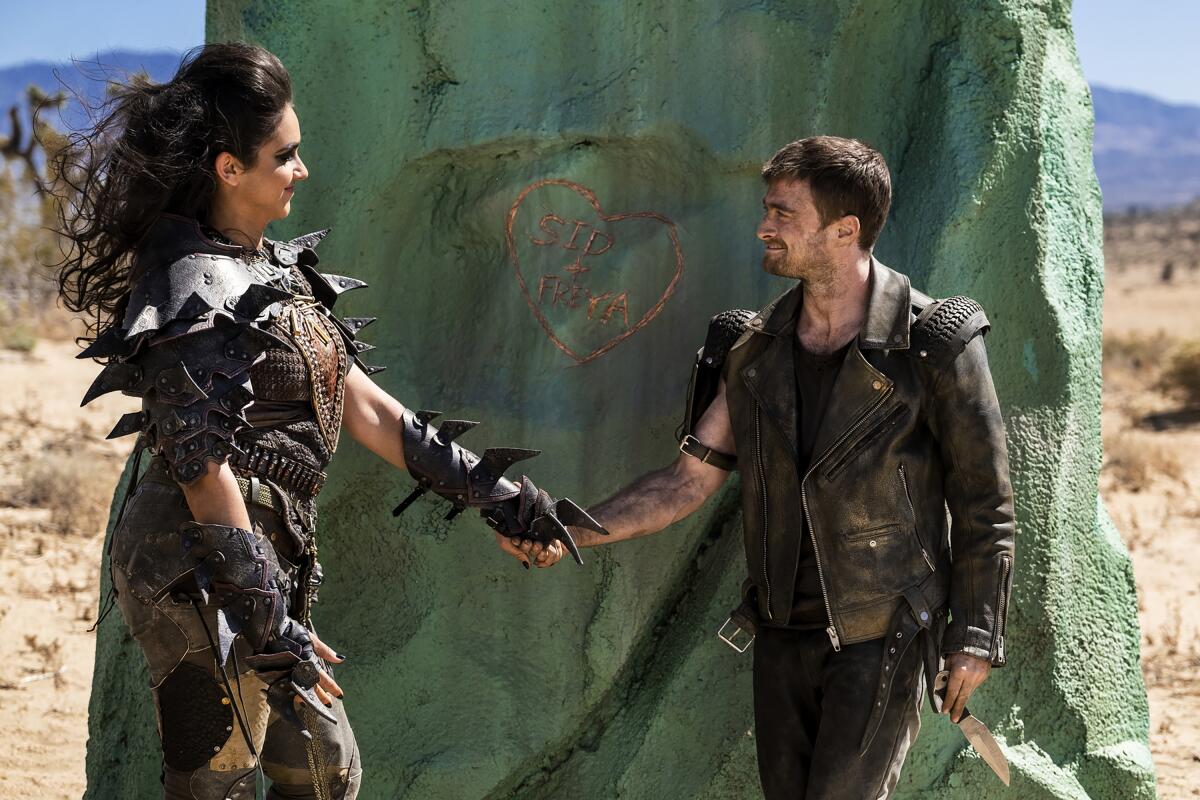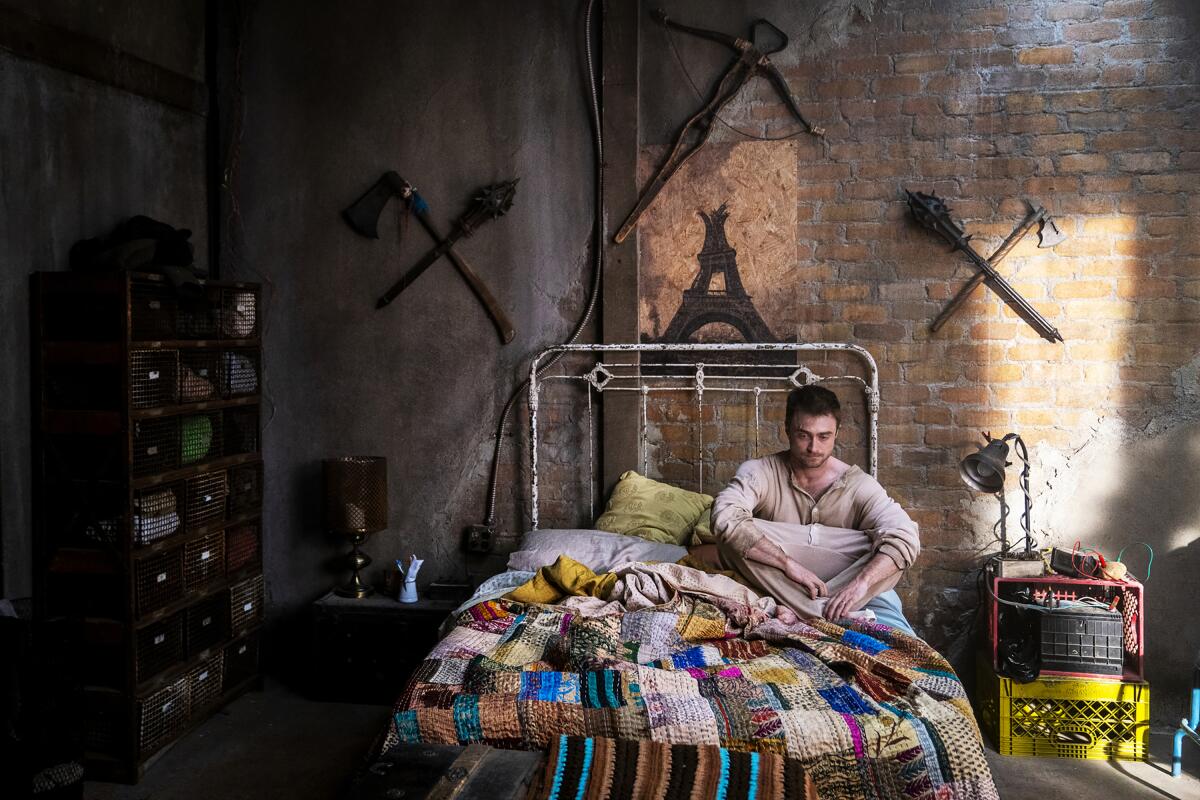It’s ‘End Times’ for TBS original comedy, and TV will be the worse for it

- Share via
In the mid to late 2010s, the basic-cable network TBS went in, in a small but creatively interesting way, for original scripted comedies, fielding a number of shows that were smart and/or silly, broad and/or nuanced, and often a little bit wicked. These included the “Naked Gun”-esque “Angie Tribeca,” the “Lost”-ish “Wrecked,” “The Detour” (my favorite family comedy maybe ever, from Jason Jones and Samantha Bee, whose late, late-night show was also on the network), the first season of “Search Party” and the alien-abduction ensemble piece “People of Earth,” which made particularly good use of headliner Wyatt Cenac. All these shows are worth seeking out, though not necessarily easy to find.
The last TBS comedy standing is the delightful “Miracle Workers,” whose fourth and final season premieres Monday, quite possibly writing a finish not just to the show but to the network’s interest in original scripted programming. That its subtitle is “End Times” feels significant.
Created by Simon Rich (“Man Seeking Woman,” “An American Pickle”), “Miracle Workers” has told a different, unrelated story each time out while maintaining its main cast: Daniel Radcliffe, Steve Buscemi, Geraldine Viswanathan, Jon Bass and Karan Soni. The first season, set mostly in Heaven, was based on Rich’s 2012 novel ““What in God’s Name?” and featured Buscemi as an exhausted Deity and Radcliffe and Viswanathan as low-level angels in the Department of (mostly un-) Answered Prayers.

The second, from Rich’s short story “Revolution,” was subtitled “Dark Ages” and set in a fictional medieval kingdom, with Radcliffe as a boob prince, Viswanathan as a woman too ambitious for her time, and Buscemi as her father, a shoveler of excrement (a trade reflected in his unprintable last name). It was followed by “The Oregon Trail,” with Radcliffe as an uptight preacher, Viswanathan as another character bored by societal restraints, and Buscemi as the fugitive outlaw leading their wagon train west.
After a Trump-fueled boom, the genre is in the midst of its most significant reshuffle in years. Here’s what’s behind it — and who stands to lose out.
The new season is set in a “Mad Max”-style postapocalypse desertscape, with Radcliffe and Viswanathan as a pair of road warriors who move from the wasteland to what passes for “the suburbs.”
The repertory approach gives the series a kind of gathering weight as it goes along. (Which is not to say it is a weighty show.) Although the characters and their stories are distinct from year to year, there are some similarities, and the actors impart their personalities and physical bearing onto each. Radcliffe’s characters are on the whole more timid, conflicted, insecure, unformed; Viswanathan’s are smarter, impulsive, adventurous and unconventional and yearn for something more. Buscemi plays variations on fathers, father figures or people in authority who maybe shouldn’t be. Soni’s characters are a little dark, a bit cynical and not without power, while Bass’ tend to be dim and (usually) sweet. It isn’t necessary to start at the beginning to watch the final season, but it’s worth it for the cumulative effect. (All seasons stream on Max, and each has its rewards.)

Where in earlier seasons Radcliffe’s and Viswanathan’s characters took a slow road to romance, “End Times,” as if conscious of its own finality, wastes no time. Within the first three minutes of the opening episode, Sid (Radcliffe), a lonely wanderer in the wasteland, and Freya (Viswanathan), a fearsome warlord, meet cute in the desert — she’s pummeling him, he’s stabbing her — and marry. Immediately we see them at the gates of Boomtown — as in “the booms” that destroyed the world — a relatively civilized scrapyard city. Living there, says Freya, will give them an opportunity “to share a life together. I was on the road all the time, with my warlording, and you wanted to move out of that cramped boulder you were hiding under.” She also thinks she will take the place over but hasn’t reckoned with the power of the HOA — the homeowners’ association.
Bass plays Scraps, the couple’s combination secretary and pet (he often functions, thinks and acts as a dog, and it is sort of disturbing), while Soni is Freya’s BFF, a Terminator-esque android with a sassy attitude who is disturbed to find Freya settling for comfortable domesticity. “They’re like robots,” he says of the people of Boomtown, “and I’m allowed to say that because I am a robot.”
Sid goes to work for Buscemi’s Morris Rubinstein, a trader in junk (“a literal garbage person”) who lives with his holographic wife (Erin Darke), a ’50s TV housewife in pearls who exists to serve, in the remains of a fast food restaurant. “It’s an authentic McMansion from the 2020s,” Morris says proudly. “We kept the original laminate floors, the chairs that only spin halfway, and after dinner we can retire to the ball pit.”
The complete guide to home viewing
Get Screen Gab for everything about the TV shows and streaming movies everyone’s talking about.
You may occasionally receive promotional content from the Los Angeles Times.
The humor in each season can be dark, violent and gruesome, but the premise and the genre make “End Times” particularly noisy. One might guess that the civilizing influence of Boomtown would form the arc of the season. (Only three episodes have been made available for review.) On the other hand, given the cinematic model, it would be equally likely that we are headed toward some sort of battle royale — within budget, of course.

But the show remains funniest in its quieter moments: Freya in bed reading a toothpaste box “for Book Club” (“Had a great beginning where the toothpaste was minty, but now I’m in this boring part where four out of five dentists recommend it”) or Buscemi, in what amounts to a one-man show, attending a high school reunion populated entirely by skeletons. (He still manages to get beat up by the remains of his old bully.)
In its combination of period or paranormal subjects with contemporary and ordinary behaviors and concerns — its banalization of the extraordinary — and its application of broad jokes to genres that are most often treated seriously, “Miracle Workers” belongs to an estimable tradition that includes Monty Python’s “Holy Grail” and “Life of Brian,” “Carry On, Cleo,” numerous Mel Brooks projects, the animated “Disenchantment” and “Futurama” and the pirate comedy “Our Flag Means Death.” (Radcliffe’s delivery sometimes puts me in mind of Rhys Darby.)
Satire is possibly too strong a word for what’s up here, but points are made about human folly, personal, social and political. At the same time, it’s easy to become invested in the characters and their stories; we’re always aware of who they are and what they mean to each other. Jokes and conceits can run over the plot in this sort of comedy, but “Miracle Workers,” for all its nuttiness, stays dimensional, relatable and oddly lovable.
More to Read
The complete guide to home viewing
Get Screen Gab for everything about the TV shows and streaming movies everyone’s talking about.
You may occasionally receive promotional content from the Los Angeles Times.








